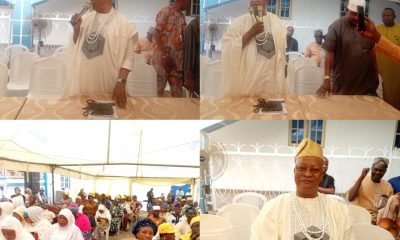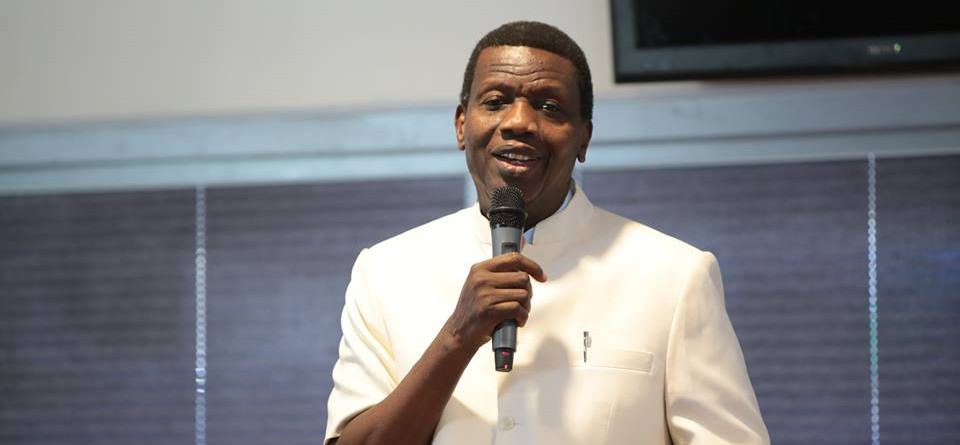News
Akintola’s Gaffe: Why Are We Like This?

Akintola’s Gaffe: Why Are We Like This? By Yinka Salaam
Unlike in the middle ages, the greatest problem besetting Islam today and the seemingly unsurmountable challenge confronting the only surviving religion of Taoheed is not the enemies from outside, it is the bickering within the fold, needless controversies among its adherents and lack of simple knowledge of crisis management – leading to avoidable divisions within. And of course, we all know that a house divided within itself cannot stand.
For the purpose of this write up, let me align with the view that the Director of the Muslim Rights Concern, Professor Is’haq Akintola actually ‘goofed and committed blunders’ with his ‘press release’ where he requested Niqabi Sisters who were being oppressed in FUNNAB to seek compromise. There is no point belabouring the issue. It is absolutely pointless to disagree at this time with those who proclaimed that, ‘Prof message was wrong, and he was merely writing out of point.’
In my previous response (entitled: FUNNAB, Niqab and Muslims) to the flurry of reactions that trailed Professor Akinola’s ‘misdeed’, I had advised then, that we give our rights activist a ‘second chance’, even as I urged the Muslim Students, particularly the leadership to endeavour to be ‘tactical in approach, strategic in planning and systematic in implementation’, so we don’t end up spoiling more than what we intend to achieve.
Surprisingly however, many young Muslims and emerging advocates have truly proved themselves worthy of awards in possessing excellent writing skills but I find it difficult to adjudge them as good writers!
Many of these critics simply threw caution to the wind, and sometimes, without thoroughness and scrupulosity, summarily condemned, lampooned and emasculated Akintola for his ‘unforgivable’ crime, as if he never identified with any good cause in the past. It was obvious that some of these critics never read the original piece, just as some didn’t bother to know the circumstance under which the write up got to the public sphere.
As I said above, without holding brief for Professor Akintola, I make bold to say that many of these writers are going about their criticisms the wrong way. Lampooning the caliber of Akintola in uncharitable manner, uncouth words and abusive language is surely not the way to go, particularly when it was obvious the ‘story’ was neither a press release nor a MURIC statement. It was a personal opinion expressed in a close WhatsApp group.
But the question is, couldn’t we make our submissions without spewing insults? Isn’t it possible to marshal our points without attacking the personalities of those we disagree with and can’t we articulate our argument without acrimony? Arguably, MURIC Director remains a foremost Nigerian Muslim in wrestling the rights of Islam and fighting for the rights of the oppressed Muslims in the country and even beyond. He was foremost during the Sukuk imbroglio, just as he had always been in the past – spanning decades.
Why are we like this?
And if I may ask, why are we like this? Human beings are prone to errors, we all know. Then if we know, why do we forget too fast many good things people have done and are quick to lampoon, lambast and ridicule them whenever they commit an error. How many of these prolific writers have ever written to commend or acknowledge the unparalleled yeoman’s job Professor Akintola is doing for Islam, even at the risk of his life?
Such an attitude is surely not Islam in whatever guise or perspective we look at it.
Without doubt, we have every right to criticise, we reserve the obligation to voice our opposition to issues and we possess the duty to disagree, but as Muslims, it is against the tenets of our Deen to be saucy, abusive, malign people’s personalities or impugn their character in expressing our opposing opinions. After all, our noble Prophet has warned that, Sibaabul Muslim Fusuuq wa Qitaaluhu Kufr (verbally abusing or insulting a Muslim is immorality/perversity and fighting him is disbelieve)
If such an unruly disposition or attitude is unworthy of a Muslim, it is outrightly blameworthy, evil and sinful on the part of those who pride themselves as duat (callers, evangelists), clerics and teachers of men who are expected to be societal role models, particularly for the younger ones. This is surely an unworthy legacy.
I can remember that equal treatment was meted out to the prolific and unflagging Femi Abbas for committing similar slip, and it almost passed unnoticed. Now, we are doing same to one of the ‘most valuable prayers’ – the dogged, assiduous, energetic and diligent Akintola and some are rejoicing. Who knows whose turn is next. Perhaps, it may even be the writer of this piece.
If we keep destroying and mowing down our precious pearls one after the other, will they be there for us at the point of need? I doubt it. A Yoruba saying goes thus: If you sell a member of your household at a ridiculously cheap price, you will not be able to reclaim such person even if you are willing to pay a valuable price.
Make no mistake about it, idle hands don’t make mistakes, it is those who work consciously and relentlessly that must make errors and commit blunders. But do we spare them as humans who must err?
We should be generous in commendation, be reserved at condemnation and cautious in criticism. And If We must, shouldn’t it be done constructively with modicum of decorum and dignity? There should be no name calling and throwing of banters – That is what our religion teaches us.
Consequently, while the Professor might have committed some blunders, the same Akintola in the very write up maintained that the Sisters have every right to be Niqabis without being molested? So why are we then resorting to Insulting a notable personality whose name is synonymous to fighting for Islam and Muslim Rights. Shouldn’t we rather endeavour to reconcile his seemingly contradictory statements – his insistence of the legality and the right of Niqab on one hand, as well as his advise on the need to seek compromise to achieve greater goal on the other?
Founded fear, a serious concern
The concern here is that, if Professor Akintola could be condemned and emasculated for ‘committing an error’ in spite of many good things he had done, who else could earn our respect and enjoin the benefit of the doubt – only our teachers, I think. So, when next notable opinion leaders refuse to comment on burning national issues, we should know the source. How many of Professor Akinola’s status are ready to risk their personalities and allow it to be dragged in the mud, by uncouth youthful writers – for the fear of making errors, the likelihood of being misunderstood and the possibility of being misquoted.
Invaluable advise
It is pertinent to note that, relationships painstakingly built over the years must neither be unwittingly destroyed nor frittered away on the altar of misunderstanding that will sooner or later be resolved. Certainly, what binds us together outweighs and outnumbers what tends to poll us apart. There are still countless number of great things to do together in future.
Commenting on my my initial write up, Sister Railu Mustapha-Tiamiyy who resides in United kingdom wrote:
Thank you for your wise words. We need not only know what the deen says, it is important to learn and understand the implementation in different situations. As I was reading through your awesome piece, it called to mind the time of the Prophet (SAW), when they went for Hajj but were not allowed in by the Meccans. The companions were very angry, disappointed and frustrated with the Prophet’s decision to not only turn back without making Hajj but also signing a treaty that was so one-sided. With all the intense emotion going on and how the companions felt about the whole event that took place, yet Allah revealed a Surah describing the event thus: “Indeed, We have given you, [O Muhammad], a clear conquest” Q48:1
Finding faults
A quotation says, “If we look for faults, we will surely find them. Everyone has flaws and imperfections, everyone makes mistakes, everyone has annoying little habits.”
Let’s remember this popular story labelled – ‘What To Do When in Disputation and Disagreement’.
When in dispute, remember Imam Shafi’i’s words of wisdom:
It is said that Yunus Ibn ‘Abd al-A’ala (a student of al-Imam ash-Shafi’i) differed with his teacher, al-Imam Muhammad Ibn Idrees ash-Shafi’i, over an issue while the imam was delivering a lesson in the Mosque. So he angrily got up and went home.
At night, Yunus heard a knock on his door and asked who it was. The one knocking answered, “Muhammad Ibn Idrees!”
Yunus thought of everyone who he knew by that name except the Imam.
Upon opening the door, he was shocked to see Imam Shafi’i Rahmatullahi Alayhi.
The Imam said:
“O Yunus! Hundreds of issues unite us, and only one issue divided us?
“Don’t try to be triumphant in all differences; sometimes, winning hearts is more important than winning situations.
“Don’t demolish bridges you built and crossed, for you may need them again one day for your return.
“Always hate what is wrong, but do not hate the one who errs. Hate sin with all your heart, but forgive and have mercy on the sinner. CRITICISE SPEECH, BUT RESPECT THE SPEAKER.
“Our job is to wipe out the disease, not the patient.”
The advise of Abdus Shakur Alyakeen, Director, Center for Global Peace Initiative becomes handy here: “Insulting the Prof. is tantamount to washing our dirty linen in the public. We should interrogate how that decision (including the bill board) got to that stage without any hint to the VC and in fact, any Muslim, in a state with a Muslim as a sitting Governor – this tells us our journey is long.
“Going forward, there is need for a collaborative approach to this issue, so that we don’t worsen the case owing to emotions as advised. And we should know that how well we handle this might determine the fate of the Hijab itself. The enemies are unrelenting,” he concluded.
Has there not come a time when the acclaimed Duat need to be certificated and/or made to be schooled in the Ethical School of Daw’ah (or is it Daw’ah School of Ethics) before religious quackery irretrievably unleash incalculable but avoidable damage on the Ummah?
Elder Yinka Salaam
-

 News5 days ago
News5 days agoInsecurity: Kogi Schools Resume On Monday
-

 Opinion4 days ago
Opinion4 days agoDon’t Pull the Plug: Why Nigerians Are Pleading for the U.S. to Extend Its Police Training Program — and Why It Must Synergize With New Military Arrivals
-

 Crime4 days ago
Crime4 days agoVigilante Reportedly Shoots Colleague Dead In Plateau
-

 News2 days ago
News2 days agoRamadan: Osun Cleric Urges Compassion Among Muslims As Asejere Distributes Relief Materials To 537 Beneficiaries





